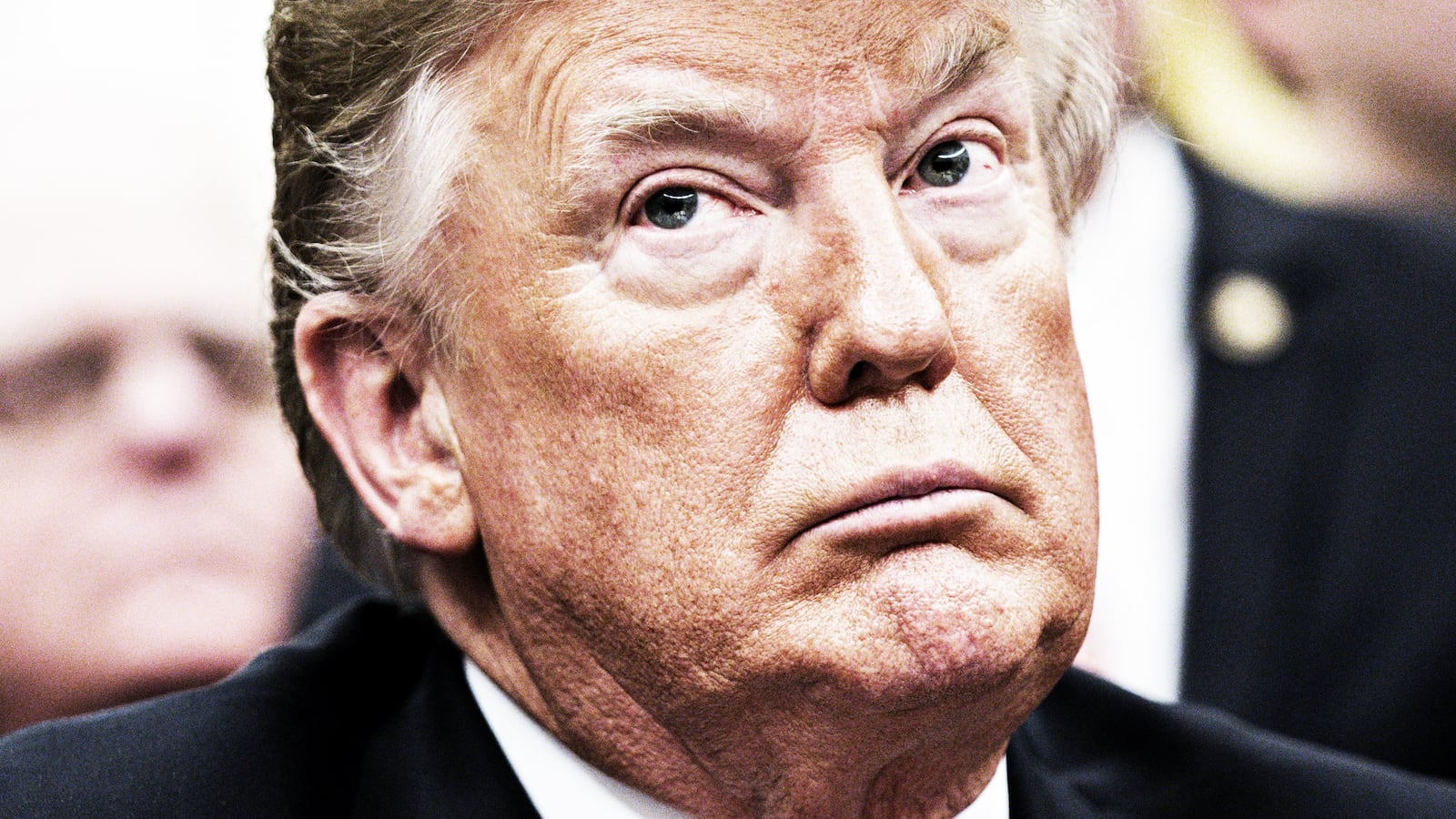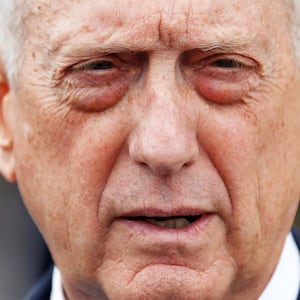“Shocked.” “Devastated.” “Chaos.” These are some of the words that multiple American allies are using to describe President Donald Trump’s tumultuous foreign policy moves on Syria and Afghanistan, capped by the resignation of Defense Secretary Jim Mattis.
“D.C. seems in disarray now, especially after the Syria announcement,” said one senior European official, echoing the reaction of allies in both the Middle East and NATO. “We are alarmed. It used to be Russia that was unpredictable.” Now, he said, it’s U.S. foreign policy that’s unpredictable.
Countries neighboring Syria were caught flat-footed on the troop withdrawal announcement, and then even more alarmed when they discovered their U.S. interlocutors at the Pentagon, the State Department and the intelligence agencies all were similarly bereft of answers about how and when the Syrian pullout would take place, and worried about reports that next year will bring a similar draw-down in Afghanistan.
The resignation of Mattis came as a brutal one-two punch, with multiple foreign officials talking about their growing worries. In the first two years of the Trump administration, they had all assured their leadership that no matter how fractious or erratic Trump seemed to be, Mattis had his hand on the tiller and would keep policy proceeding apace. He was their ally and advocate in the Oval Office. Mattis famously told those working for him, “You just keep your heads down and do your job. I’ll manage the Oval Office.” And many of his interlocutors abroad thought he could do the same for them.
All knew this president didn’t want troops overseas, but it’s how he’s gone about making the decision that has left them stunned.
The tragedies of Syria, Iraq, and Afghanistan might not have been resolved by the continued involvement of relatively small numbers of American troops, but some of the worst effects were being held in check. Now, diplomats in the region fear, the people of those countries are being handed over to the tender mercies of Russia, Iran, Turkey, an Islamic State showing signs of revival, and the Taliban who were already regaining momentum.
A source who worked with Mattis for years noted that one major reason he stayed with Trump was to build a strategy opposing Iran’s growing power in the region, but the precipitous withdrawal from Syria sinks that project. The Israeli government, which wants Iran out of Syria altogether, hoped the Russians would help. But that didn’t happen. So it had looked to the Americans to keep up the pressure. Now that’s off.
“The long-term lesson is that Trump, in his situation, has become someone who cannot be relied on,” Amos Harel wrote in the left-leaning Israeli newspaper Haaretz. “Trump is in such big trouble and acts in such an erratic manner that the Israeli government cannot be certain of his support over the long term.”
Some U.S. soldiers stationed in the eastern part of Syria are already on their way back to the forward operating base in al-Qaim, Iraq, according to a senior U.S. official. It’s unclear if those soldiers will remain in Iraq or if they will be re-deployed elsewhere in the region or sent back to America.
A senior Iraqi official told The Daily Beast, “The draw-down is not a surprise—it reconfirms that the U.S. has no staying power and indeed does not follow through with its allies—but the speed of the withdrawal is.”
All of the Middle East officials spoke on condition of anonymity out of concern that the Trump administration’s vindictiveness would complicated a dangerous situation still further.
But German Defense Minister Heiko Maas tweeted his displeasure: “The abrupt decision of the #USA their troops out #Syrien is not only surprising for us. The IS is pushed back, but the threat is still there. There is a risk that this decision will harm the fight against IS and endanger the achievements achieved,” according to Twitter’s translation of his tweet.
The perception that the U.S. is betraying its Kurdish allies does not bode well for U.S. credibility across the region, the Iraqi official said. “Many forces hostile to the United States in Iraq will use this logic of President Trump to call for ending U.S. military presence here [in Iraq], too.”
The Iraqi said it wasn’t clear from conversations with U.S. military officials that they agreed with Trump’s withdrawal. “The threat of ISIS is still clear and present in Iraq as well as Syria. It was seen as one theater of operation — the two countries together,” the official said, adding that Baghdad is now concerned that a withdrawal in Syria also means a troop drawdown in Iraq.
Prior to Trump’s announcement Wednesday “nobody talked about reducing troops or saying that there is a need to reduce troops,” the official said. “The discussion has always been on a longer term presence,” aiming to craft “more predictable rules of engagement. This makes it less predictable.”
“The troops are there with the permission of the Iraqi government—and the Iraqi government still wants them there. There are serious military operations going on,” the official said, adding that there are still large numbers of ISIS fighters in both Iraq and Syria. “They are indigenous, not just foreign fighters. This requires a longer operation.”
So far, neither the White House nor the Pentagon nor the State Department can answer questions that many Middle East officials have put to them, according to multiple Mideast officials who spoke to The Daily Beast. “The end game is not clear yet, neither the impact or the schedule. More importantly the political message is that the U.S. is seriously disengaging with Syria. Any vacuum will be filled by others,” a Mideast official warned.
A Kurdish official said the State Department still hadn’t informed them of how this withdrawal would work, though the Pentagon had informed the Kurdish Peshmerga fighters it works alongside in Iraq. When asked if his government would trust the Americans again after this surprise withdrawal, he replied, “It is difficult.”
Turkey seems to be the only regional actor celebrating the move, in that it separates U.S. troops from its Syrian Democratic Force allies in Syria—which the Turkish government considers one and the same with the Syrian YPG, a Kurdish group linked with the Turkish-based PKK insurgency, recognized by the European Union and indeed the United States as a terrorist group because of its actions inside Turkey and abroad.
“We don’t want to see our biggest ally shoulder to shoulder with terrorist elements,” a Mideast official said, speaking anonymously to discuss the point of contention with the U.S. operation. Turkey believes that the Americans’ Kurdish allies in the SDF have tried to purge eastern Syria of Syrian Arabs, though U.S. officials insist the ranks of the SDF are largely Arab.
“Trump has made it very clear that he wants to bring troops home,” the official said. “I wouldn’t be surprised if he brings them home from Afghanistan next year.”
Indeed. For months now U.S. troops in Afghanistan have wondered if the president would change course and pull them out, ultimately putting an ending to a nearly 17-year-long war. But many hoped that day would never come.
Last summer, Gen. John W. Nicholson Jr., then the commander for U.S. troops in Afghanistan, launched a public relations campaign in part to try to convince President Trump to allow his forces to stay stationed in the country. It seems that effort has largely failed, and his loss very likely will mean the Taliban's gain.
In Syria, doctors with major international aid groups said the news of the U.S. withdrawal of troops from the northern part of the country was unwelcome news. One doctor who works in the Idlib area, but travels back and forth from Turkey, said he thought that if the U.S. troops left the country, the international community would all but forget about his country. Less international aid and medical supplies would flow to Syria, he said.
For years now, the Syrian medical community has struggled to service its population as it has suffered from a massive brain drain. Doctors have fled the country to Western nations to either continue their studies or to take jobs elsewhere. That’s left the doctors who have stayed in Syria understaffed and overworked. One doctor told The Daily Beast that first-year medical students are conducting surgery on children in besieged cities because there is no one else with the wherewithal to help.










